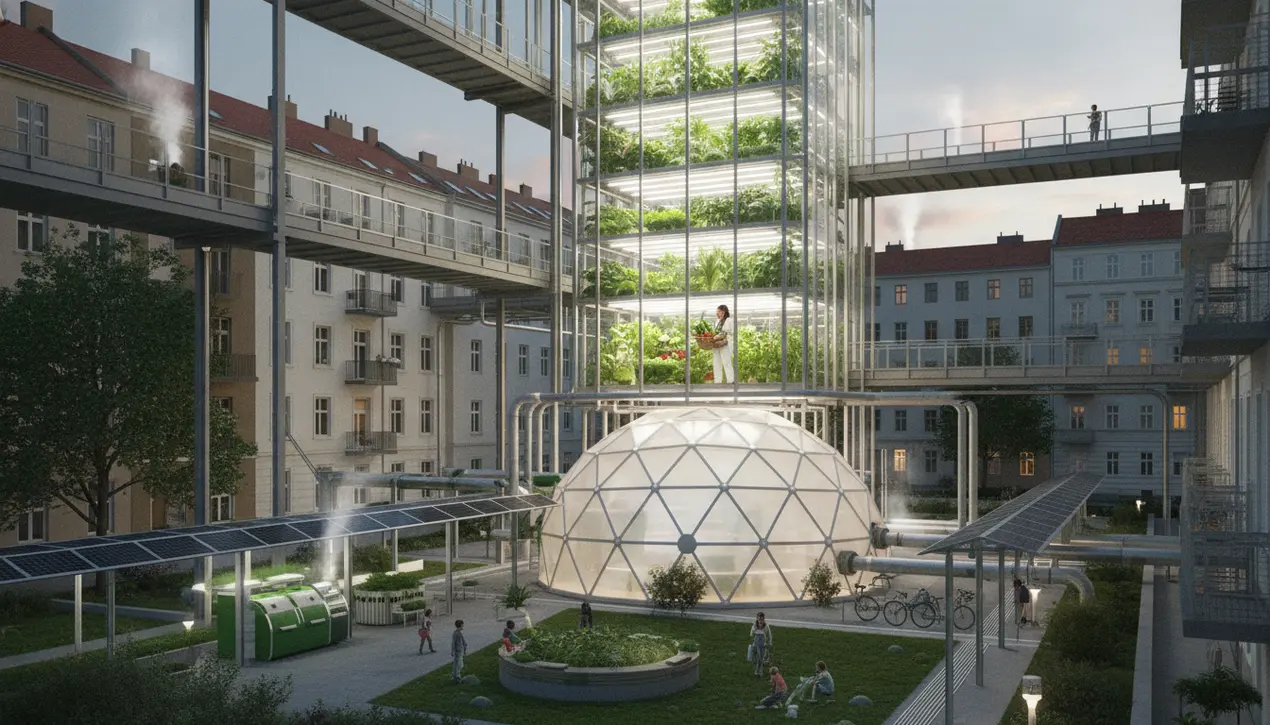
Scienceclimate scienceSustainable Development
Zero waste kitchen city prototype expands into self-sustaining urban ecosystem.
RA
Rachel Adams
2 hours ago7 min read
In a bold reimagining of urban sustainability, Vienna is becoming the testing ground for a revolutionary closed-loop system that expands the zero-waste kitchen concept into an entire self-sustaining urban ecosystem. This isn't merely an architectural project; it's a profound ecological intervention, a living laboratory where the very metabolism of a city is being redesigned to mimic the waste-not cycles of a natural environment.The prototype, which began as a domestic model focusing on household food waste and resource management, has now scaled to integrate entire city blocks, creating a symbiotic network where one building's output becomes another's vital input. Imagine a city district where organic waste from residential kitchens is no longer trucked to distant landfills but is instead processed locally through anaerobic digesters to produce biogas for cooking and heating, while the resulting nutrient-rich digestate feeds vertical farms that supply fresh produce back to those same households.This vision of a circular urban economy directly confronts the linear 'take-make-dispose' model that has dominated city planning since the industrial revolution, a model that Rachel Carson might have decried for its inherent wastefulness and ecological blindness. The Vienna initiative draws inspiration from pioneering eco-cities like Kalundborg in Denmark, but with a crucial difference: its focus is intensely localized, aiming to create resilience not through global supply chains but through hyper-local loops that make a neighborhood fundamentally self-reliant.Experts in urban ecology see this as a critical evolution beyond mere recycling programs, which often simply delay rather than prevent waste. Dr.Elena Schmidt, an urban systems researcher at the Institute for Advanced Sustainability Studies, notes, 'What makes Vienna's approach so compelling is its systemic integration. It's not just about better waste management technology; it's about redesigning the relationships between housing, energy, food production, and water systems so they function as a coherent, regenerative whole.This is biomimicry applied at the civic scale. ' The potential consequences are staggering—reducing a city's carbon footprint by eliminating transport emissions for waste and imported food, enhancing food security by localizing production, and creating green jobs in the new circular economy.However, significant challenges remain, from navigating complex municipal regulations designed for linear systems to ensuring these new ecosystems are socially equitable and not just green enclaves for the affluent. The project serves as a powerful testament to a growing global recognition, echoed in the work of activists like Greta Thunberg and organizations like Greenpeace, that the climate crisis demands not just incremental improvements but a fundamental rethinking of how we inhabit our planet. As cities worldwide grapple with resource scarcity and climate disruption, Vienna's expanding prototype offers a tangible, hopeful blueprint for a future where urban centers are not parasites on the landscape but integrated, thriving partners in the Earth's ecosystems.
#sustainable architecture
#urban planning
#closed-loop systems
#self-sustaining
#Vienna
#featured
Stay Informed. Act Smarter.
Get weekly highlights, major headlines, and expert insights — then put your knowledge to work in our live prediction markets.
Comments
Loading comments...
© 2025 Outpoll Service LTD. All rights reserved.